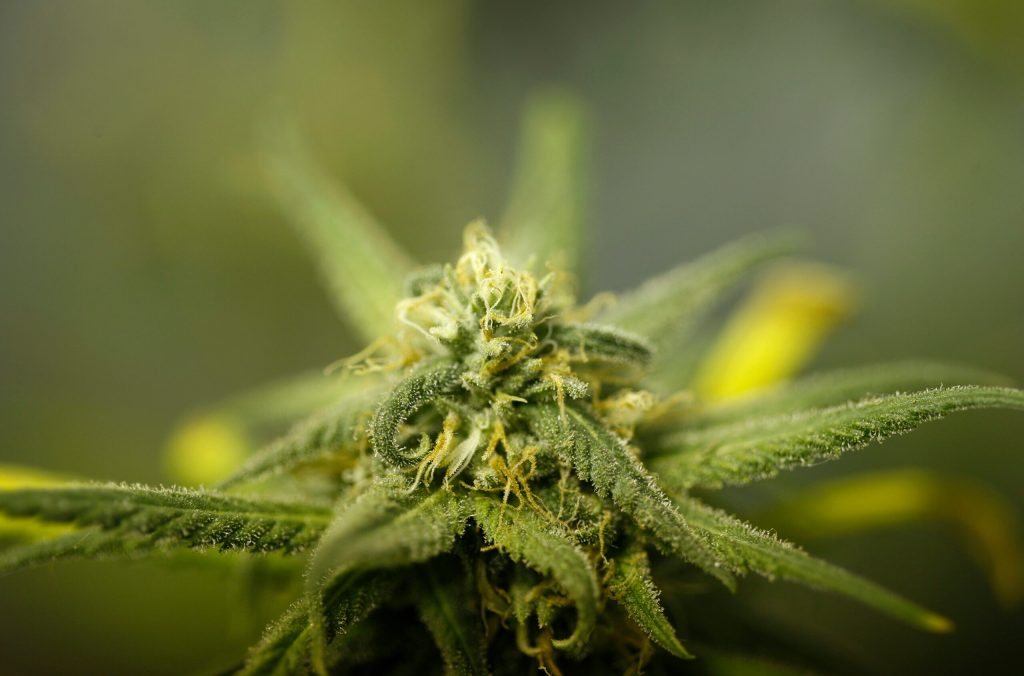This story has been updated with comment from the Office of National Drug Control Policy.
Officials from the DEA and the White House have quietly been holding meetings in Colorado to discuss the marijuana black market, heightening concerns that federal authorities could be planning a crackdown in states with legal weed.
A meeting Wednesday in Colorado Springs was supposed to be secret, but local news station KKTV staked it out and filmed attendees coming and going. The participants reportedly included two DEA officials and representatives from the Justice Department, the Office of National Drug Control Policy, and the office of Vice President Mike Pence. The feds met with the mayor of Colorado Springs, the town’s chief of police, a local doctor, and a school district official.
Videos by VICE
Colorado Springs Mayor John Suthers told KKTV that “most of the discussion centered around the huge black market that exists for marijuana in Colorado.”
The Trump administration delegation also reportedly met earlier this week with the staff of Colorado Gov. John Hickenlooper, but the governor himself did not participate in the talks.
Located about 70 miles south of Denver, Colorado Springs has been at the center of the debate about how to handle so-called “diversion” of marijuana from Colorado to other states where the drug remains illegal. In March, state authorities indicted 16 people accused of smuggling thousands of pounds of weed from Colorado Springs, Denver, and other towns to Illinois, Arkansas, Minnesota, and Missouri.
Suthers told KKTV that the feds talked to local law enforcement about “what they’re finding in houses — what they’re finding, and who is doing it, and where these people are coming from.”
President Donald Trump said on the campaign trail that he thinks marijuana “should be a state issue,” but Attorney General Jeff Sessions is an outspoken opponent of legal weed. Sessions created a special task force to review the Justice Department’s policy on marijuana enforcement; the recommendations are due July 27.
The Office of National Drug Control Policy said the federal officials visited at Hickenlooper’s invitation and had “open discussions” about “Colorado’s black drug market, the state’s regulatory and enforcement framework, and drug use and other trends in the state.”
A spokesperson at DEA headquarters in Washington, D.C., wasn’t aware of the meeting until VICE News asked about it Thursday, but said it likely involved state-level officials from the federal agency. An agent from the DEA’s Denver field office declined to discuss the meeting or say who attended.
Eight states and Washington, DC, now allow recreational marijuana sales to adults, and the DEA and other federal law enforcement agencies have mostly been hands-off. But the Cole Memo, which lays out the Justice Department’s stance on legal weed, says preventing “diversion of marijuana outside of the regulated system and to other states” is a top priority.
After the big black market weed bust in March, a DEA spokesperson accused illicit growers and dealers of operating under the guise of legalization. “They get appropriate paperwork, but they are going to grow as much as they can and all of the excess is going out of state,” the DEA’s James Gothe told the Denver Post.
A report published last year by the Colorado Information Analysis Center found that from January 2014 to August 2015, police officials around the country reported 169 cases where they seized marijuana or hash that came from Colorado. Another report from the Rocky Mountain High Intensity Drug Trafficking Area, a federal anti-drug agency, said the Colorado State Patrol made 394 seizures in 2015 of Colorado pot that was destined for 36 states.
On the other hand, as VICE News has reported previously, there’s ample evidence that state-level legalization has cut into the profits of Mexican cartels that used to dominate the marijuana trade, and largely put local black market dealers out of business. Colorado uses marijuana tax revenue to fund schools and combat the opioid crisis.
Jason Warf, executive director for the Southern Colorado Cannabis Council, suggested the Colorado Springs meeting was about how local authorities can use federal drug laws to confiscate cash and property from marijuana dealers. Earlier this week, Sessions rolled back Obama-era restrictions on the use of civil asset forfeiture. Under the new policy, local cops can partner with the DEA to use forfeiture in drug cases even when it’s against state law.
“It is now far more lucrative for a municipality to work with the federal government on drug arrests, rather than prosecuting individuals under state law,” Warf said in a statement, according to KKTV. “Under federal seizure laws, they receive a much larger percentage of assets seized. We have received word and believe that these meetings are about circumventing state law because of this revenue difference.”
CORRECTION July 20, 2017 2:45 p.m.: An earlier version of this story incorrectly stated that seven states and Washington, DC, have legalized recreational marijuana. Eight states, plus Washington, DC, now have such laws.




